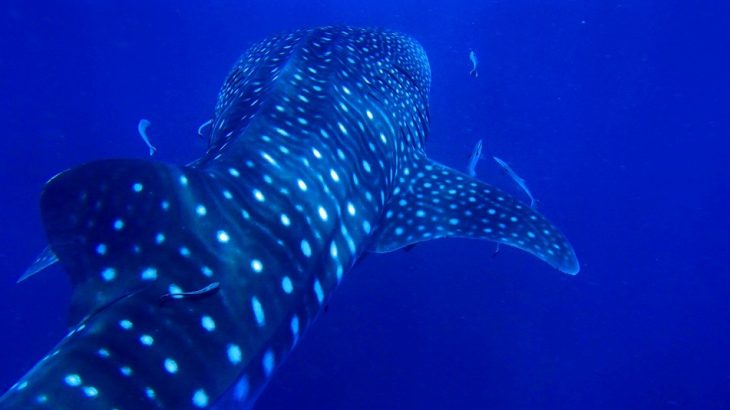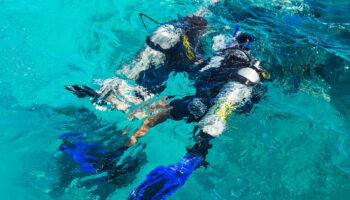Beyond the Mayan coast of the Yucatán, a shiver of gilled behemoths migrate into the warm gulf waters. Most people never venture past the tropical shores of Cancún and Cozumel, or at least far enough to see these magnificent creatures up close.
Use these helpful tips to plan your whale shark encounter on your next beach vacation to Mexico’s Yucatán Peninsula.
When to See Whale Sharks
The Yucatán’s coast has flawless weather year round, however, warm summer waters are more appealing to these tropical titans. Whale Sharks arrive annually around May and depart in late September. Book your adventure July through August for the best chance to see the world’s largest fish.
How to Prepare
- Arrive at least 10 to 15 minutes early—most excursions offer scheduled transportation so this shouldn’t be a problem.
- Be sure to use an ocean-safe sunscreen like Stream2Sea so your up-close experience is safe for the whale sharks.
- If you don’t have your sea legs yet, prepare for choppy waters with over-the-counter motion sickness tablets. For a natural remedy, try ginger pills.
Check with your guide when planning your trip as they may provide these necessities for you.
What to Expect
Every experience is unique—some see hundreds of whale sharks while others see just a few. The good news is they won’t eat you. These gentle giants are filter feeders so you can relax and enjoy the encounter.
You’ll begin with a general orientation and safety briefing, along with a complimentary breakfast, before you set sail. Each tour varies but you should expect two to three hours of actual time in the water. Guides usually take pictures for you, so don’t worry too much about photos and just be present in the moment. Cancún Whale Shark Tours likes to finish the tour with a casual cruise to a reef off Isla Mujeres where you can eat, drink and snorkel at your own leisure.
Whale Shark Laws
Whale Shark season does have a few restrictions to be aware of. The season is very strict, so do your research before booking as swimming with the sharks outside of season is illegal. Scuba Diving with whale sharks is not permitted, however snorkeling is appropriate. Last, tempting as it may be, you can not touch them. They are still wild animals and you don’t want to startle or agitate them. These rules may seem trivial to most, but conservationists work hard to protect whale sharks by establishing these guidelines so they will continue to share their beauty and magnitude with the world.







